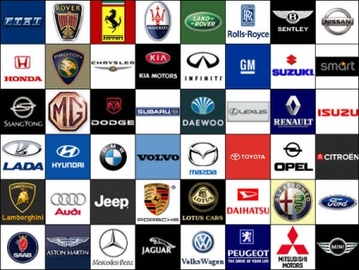AEC
Associated Equipment Co | Brand
AEC (Associated Equipment Co.) was a vehicle manufacturer which built buses, motorcoaches, and lorries from 1912 until 1979. The acronym stood for the Associated Equipment Company, but this name was hardly ever used; instead it traded under the AEC and ACLO brands.
While famously associated with London's Routemaster buses, AEC supplied commercial vehicles to many companies both domestically and around the world.
Subject ID: 4051
MoreAEC (Associated Equipment Co.) was a vehicle manufacturer which built buses, motorcoaches, and lorries from 1912 until 1979. The acronym stood for the Associated Equipment Company, but this name was hardly ever used; instead it traded under the AEC and ACLO brands.
While famously associated with London's Routemaster buses, AEC supplied commercial vehicles to many companies both domestically and around the world.
Also in 1948 AEC acquired Crossley Motors and the Maudslay Motor Company and on 1 October 1948 AEC set up Associated Commercial Vehicles (ACV) as the holding company for the newly acquired businesses and its own manufacturing firm, which was renamed AEC Limited. The initials AEC remained on its vehicles, with the exception of some badge-engineered versions, such as the Crossley Regent bus. In 1949 ACV acquired the bus coachbuilding company Park Royal Vehicles, along with its subsidiary Charles H Roe. Park Royal designed a new cab for the AEC Mercury in the mid-1950s, which appeared on all models across the range about this time.
In 1961 ACV acquired Thornycroft. The Thornycroft name disappeared from all the vehicles except the specialist airport crash tenders, such as the Nubian, and the Antar off-road tractor unit. Production of he AEC Dumptruk was transferred to Basingstoke, and the Thornycroft six-speed constant-mesh gearbox and later nine and ten-speed range-change versions were fitted to AEC, Albion, and Leyland buses and lorries.
Leyland Motors acquired ACV in 1962. AEC lorries were given the same "Ergomatic" cabs used across several Leyland marques (including Albion). In 1968, all AEC double-decker buses ceased production with the completion of the last Routemasters, and its last buses, motorcoaches and lorries were built in 1979. The AEC name actually disappeared from commercial vehicles in 1977, but the Leyland Marathon was built at the Southall plant until British Leyland closed it in 1979. In 1979, the production of Leyland (AEC) vehicles was transferred to Volvo as a result of an acquisition by Volvo.
Subject ID: 4051
Subject ID: 4051

